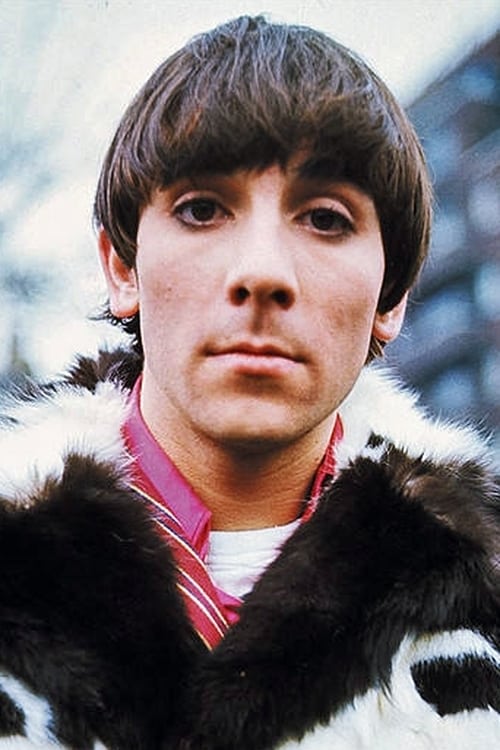
Keith Moon
Birth : 1946-08-23, Wembley, London, England, UK
Death : 1978-09-07
History
From Wikipedia, the free encyclopedia.
Keith John Moon (August 23, 1946 – 7 September 1978) was an English musician, best known for being the drummer of English rock group The Who. He gained acclaim for his exuberant and innovative drumming style, and notoriety for his eccentric and often self-destructive behaviour, earning him the nickname "Moon the Loon". Moon joined The Who in 1964. He played on all albums and singles from their debut, 1964's "Zoot Suit", to 1978's Who Are You, which was released three weeks before his death.
Moon was known for dramatic, suspenseful drumming—often eschewing basic back beats for a fluid, busy technique focused on fast, cascading rolls across the toms, ambidextrous double bass drum work and wild cymbal crashes and washes. He is mentioned in the Rock and Roll Hall of Fame as one of the greatest of all rock and roll drummers, and was posthumously inducted into the Rock Hall as a member of The Who in 1990.
Moon's legacy, as a member of The Who, as a solo artist, and as an eccentric personality, continues to garner awards and praise, including a Rolling Stone readers' pick placing him in second place of the magazine's "best drummers of all time" in 2011, nearly 35 years after his death.
Description above from the Wikipedia article Keith Moon, licensed under CC-BY-SA, full list of contributors on Wikipedia

Self (archive footage)
Through conversations with the world's greatest drummers, director Justin Kreutzmann explores the importance of music in bringing people together.
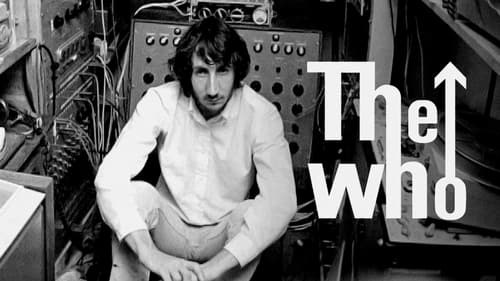
Self - The Who Member
The story of Roger Daltrey (vocals), Pete Townshend (guitar), John Entwistle (bass) and Keith Moon (drums): The Who, one of the most original, creative and relevant British bands of the sixties and of the entire history of pop music.

Theme Song Performance
Shouya Ishida starts bullying the new girl in class, Shouko Nishimiya, because she is deaf. But as the teasing continues, the rest of the class starts to turn on Shouya for his lack of compassion. When they leave elementary school, Shouko and Shouya do not speak to each other again... until an older, wiser Shouya, tormented by his past behaviour, decides he must see Shouko once more. He wants to atone for his sins, but is it already too late...?
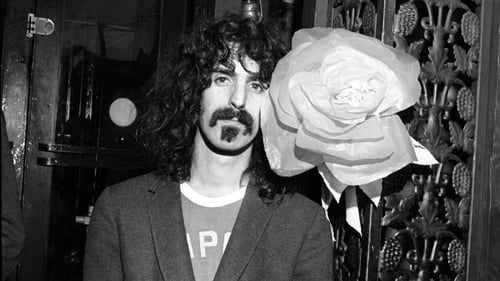
Himself
Utilizing potent TV interviews and many forgotten performances from his 30-year career, we are immersed into Frank Zappa’s world while experiencing two distinct facets of his complex character. At once Zappa was both a charismatic composer who reveled in the joy of performing and, in the next moment, a fiercely intelligent and brutally honest interviewee whose convictions only got stronger as his career ascended.
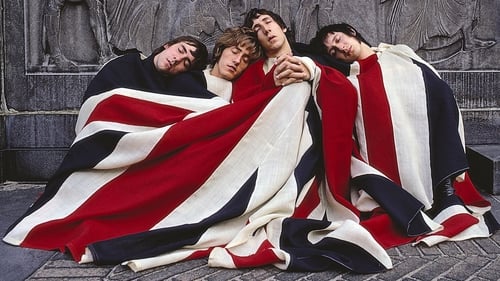
A compendium of TV and concert appearances from French Television, showcasing the prowess and power of The Who in their earlier days. Highlights include "Pictures of Lily", "Can't Explain", "My Generation", "Substitute" and many others.
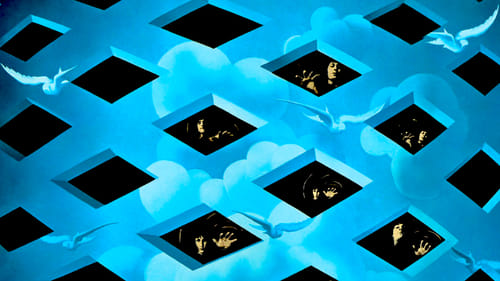
Himself
The Who's seminal double album 'Tommy', released in 1969, is a milestone in rock history. It revitalized the band's career and established Pete Townshend as a composer and Roger Daltrey as one of rock's foremost frontmen. The first album to be overtly billed as a 'rock opera', 'Tommy' has gone on to sell over 20 million copies around the world and has been reimagined as both a film by Ken Russell in the mid-seventies and a touring stage production in the early nineties. This new film explores the background, creation and impact of 'Tommy' through new interviews with Pete Townshend and Roger Daltrey, archive interviews with the late John Entwistle, and contributions from engineer Bob Pridden, artwork creator Mike McInnerney plus others involved in the creation of the album and journalists who assess the album s historic and cultural impact.

Himself
In this crazy, chaotic gospel of chance, aspiring filmmakers Chris Stamp and Kit Lambert set out to search for a subject for their underground movie, leading them to discover, mentor, and manage the iconic band known as The Who and create rock 'n' roll history.

Himself
1968 was a time of soul searching for the band - with three badly performing singles behind them they needed a big new idea to put them back at the top and crucially to hold them together as a band. Inspired by Indian spiritual master Meher Baba, Pete Townshend created the character of Tommy, the 'deaf, dumb and blind boy'. Broke and fragmenting when they started recording, the album went on to sell over 20 million copies. In this film, the Who speak for the first time about the making of the iconic album and how its success changed their lives.
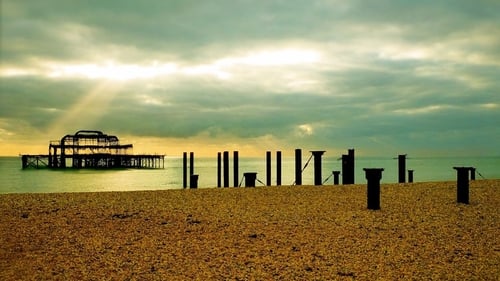
Himself
In his home studio and revisiting old haunts in Shepherds Bush and Battersea, Pete Townshend opens his heart and his personal archive to revisit 'the last great album the Who ever made', one that took the Who full circle back to their earliest days via the adventures of a pill-popping mod on an epic journey of self-discovery. But in 1973 Quadrophenia was an album that almost never was. Beset by money problems, a studio in construction, heroin-taking managers, a lunatic drummer and a culture of heavy drinking, Townshend took on an album that nearly broke him and one that within a year the band had turned their back on and would ignore for nearly three decades. Contributors include: Pete Townshend, Roger Daltrey, Ethan Russell, Ron Nevison, Richard Barnes, Irish Jack Lyons, Bill Curbishley, John Woolf, Howie Edelson, Mark Kermode and Georgiana Steele Waller.
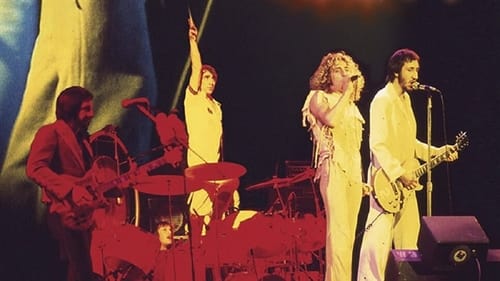
Himself
The Who perform a live set at The Summit, Houston, Texas on 20 November 1975. Probably the best 'official' bootleg ever. All the classics including Substitute, I Can't Explain, My Generation & Won't Get Fooled Again.

A 2-disc collection of live and TV performances by The Who. Before this release, several other bootleg DVDs had compiled the 1960s Who footage, with varying degrees of success. It's difficult, however, to imagine a better, more comprehensive one than this two-DVD collection, which assembles almost four hours of live, mimed, promo, interview, and documentary clips from various sources. The image and sound quality are usually as good as, or better than, what's seen or heard on those previous compilations.
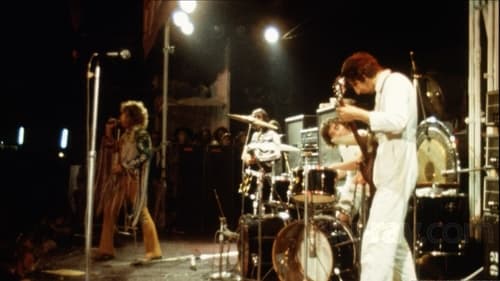
Himselft
Mod rockers The Who are captured live by director Murray Lerner at the legendary Isle of Wight festival in 1970, attended by 600,000 people. All the old classics are included in a typically energetic set; Moon the Loon, Roger the Dodger and Pete... the guitarist. And John Entwistle on bass.
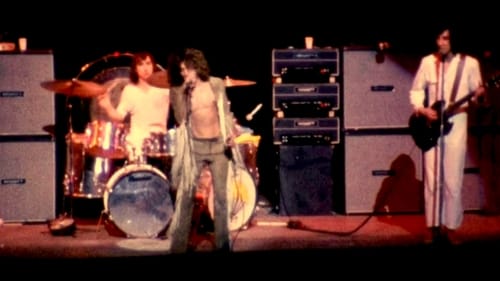
Himself - drums
Concert of the Who's first filming of the Rock Opera «Tommy» at London's opera house, the Coliseum, 14 December 1969. At this point, the Who were in full stride, playing behind Tommy and making waves where ever they went. This performance, as rough and raw as it seems, is the Who at their all-time nastiest. Opening with the powerful «Heaven And Hell», the group slays each number — «I Can’t Explain», «Fortune Teller», «Tattoo» — before ascending the mountain of conceptual copiousness.
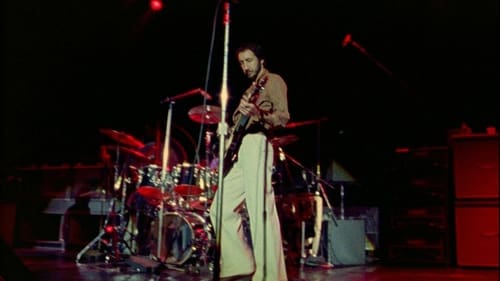
drums
Featuring one of the last public appearances by Keith Moon, the 1977 Kilburn show is a long-sought holy grail for fans of The Who, performing before a select audience on December 15, 1977 at Kilburn. Also included is a much earlier never-before-seen rarity and one of the band's personal favorites, The Who's powerhouse London Coliseum gig from 1969.

A two-disc retrospective of iconic Beat Club performances recorded between 1968 and 1979 for German Television. Artists include: The Herd, The Kinks, Blue Cheer, Rolling Stones, The Who, Jimi Hendrix Experience and many others.
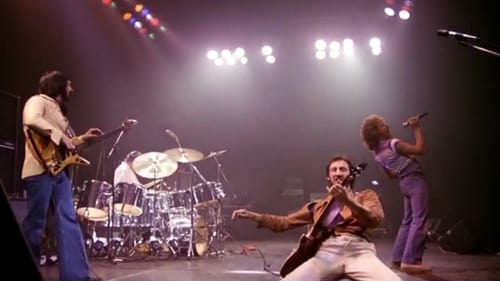
Himself (archive footage)
A documentary on The Who, featuring interviews with the band's two surviving members, Pete Townshend and Roger Daltrey.

Documentary about notorious British wildmen Richard Harris, Peter O'Toole, Oliver Reed and Keith Moon and their excesses and exploits.
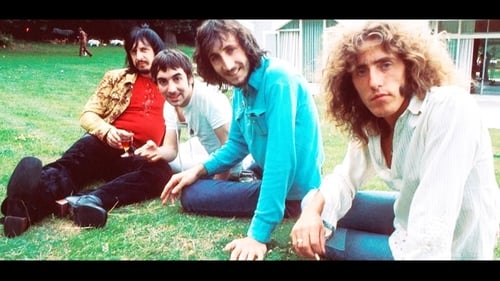
Self
In this 1999 documentary, Pete Townshend, Roger Daltrey and John Entwistle discuss the making of what many consider the Who's greatest testament to Townshend's songwriting talent: their classic album "Who's Next." Others close to the group weigh in with insights about the late Keith Moon's importance to the band. The retrospective also features unseen performances of tunes from the platter, including "Won't Get Fooled Again" and "Baba O'Riley."
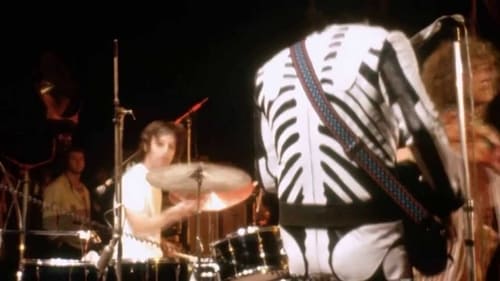
Himself
Mod rockers the Who are captured live by director Murray Lerner at the legendary Isle of Wight festival in 1970, attended by 600,000 people. All the old classics are included in a typically energetic set; Moon the Loon, Roger the Dodger and Pete... the guitarist. And John Entwistle on bass. This is the first DVD release, without the extra material found on the DVD/Blu-ray re-release of 2006.
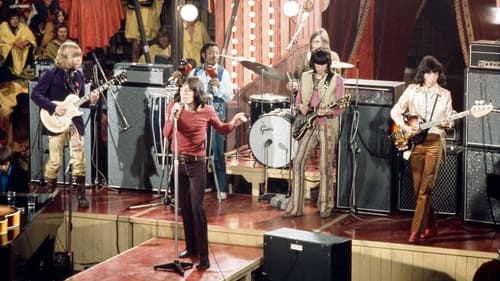
Self - Drums
A 1968 event put together by The Rolling Stones. The film is comprised of two concerts on a circus stage and included such acts as The Who, Taj Mahal, Marianne Faithfull, and Jethro Tull. John Lennon and his fiancee Yoko Ono performed as part of a supergroup called The Dirty Mac, along with Eric Clapton, Mitch Mitchell, and Keith Richards.

Himself
A celebration of 30 years of The Who.

Executive Producer
Based on the 1973 rock opera album of the same name by The Who, this is the story of 60s teenager Jimmy. At work he slaves in a dead-end job. While after, he shops for tailored suits and rides his scooter as part of the London Mod scene.
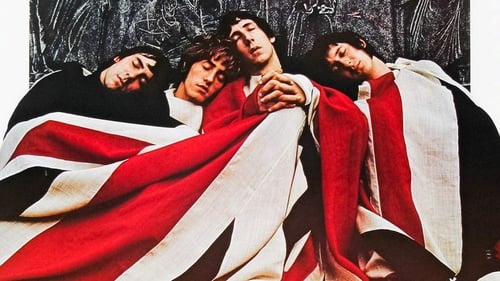
Himself
Through concert performances and interviews, this film offers us a comprehensive look at the British pioneer rock group, The Who. It captures their zany craziness and outrageous antics from the initial formation of the group in 1964 to 1978. It notably features the band's last performance with long-term drummer Keith Moon, filmed at Shepperton Studios in May 1978, three months before his death.
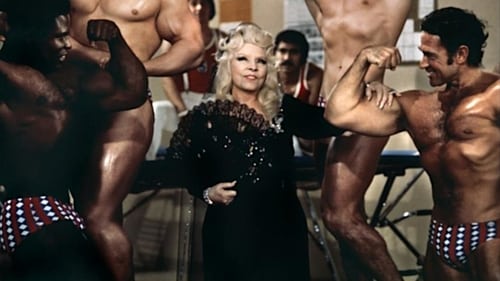
Dress Designer
On the day of her wedding to her sixth husband, a glamorous silver screen sex symbol is asked to intervene in a political dispute between nations, which leads to chaos.

Self
Train wreck, some might call it a TV special, proving that not everything was better in the good old days. That includes Rolling Stone Magazine.
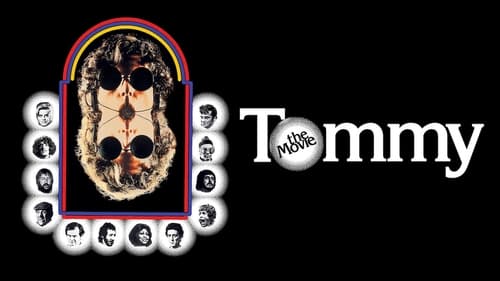
Original Story
A psychosomatically deaf, dumb and blind boy becomes a master pinball player and the object of a religious cult.

Uncle Ernie
A psychosomatically deaf, dumb and blind boy becomes a master pinball player and the object of a religious cult.

JD Glover
Jim MacLaine is now enjoying the nomadic 'gigs and groupies' life on tour with his band. When he achieves all his wildest dreams of international stardom, the sweet taste of success begins to turn sour.
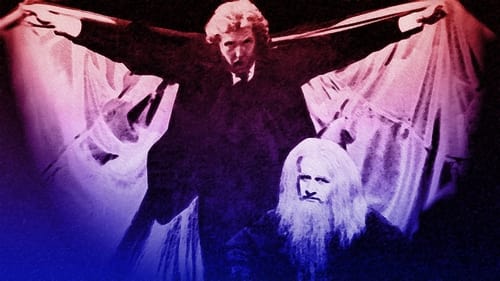
Musician: The Count Downes
Due to be crowned King of the Netherworld by his mentor Merlin the Magician, Count Downe–the son of Count Dracula–falls in love with the beautiful but human Amber and finds himself in conflict with Baron Frankenstein, who is vying for the same honorary title.

Mad Doctor Cherman
Comedy short about a supersonic jet that lands in a small town and creates hysteria about an impending sonic boom that never happens.

This documentary is about the first five years of BBC Radio 1 and contains interviews with the disc jockeys and other folk who were involved in the station's inception. It also contains footage from the previous pirate radio era as a means of explaining why Radio 1 came about.
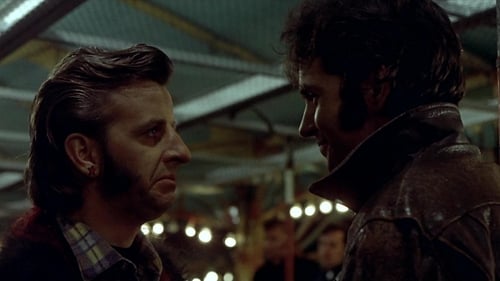
J.D. Glover
Britain, 1958. Restless at school and bored with his life, Jim leaves home to take a series of low-level jobs at a seaside amusement park, where he discovers a world of cheap sex and petty crime. But when that world comes to a shockingly brutal end, Jim returns home. As the local music scene explodes, Jim must decide between a life of adult responsibility or a new phenomenon called rock & roll.
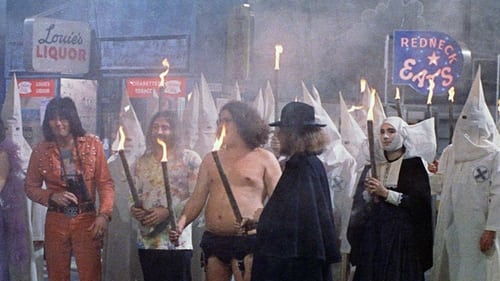
Hot Nun
"Touring makes you crazy," Frank Zappa says, explaining that the idea for this film came to him while the Mothers of Invention were touring. The story, interspersed with performances by the Mothers and the Royal Symphony Orchestra, is a tale of life on the road. The band members' main concerns are the search for groupies and the desire to get paid.
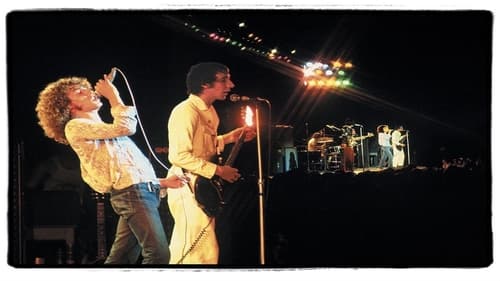
Himself
1 Heaven And Hell 2 I Can't Explain 3 Water 4 I Don't Even Know Myself 5 Young Man Blues 6 Overture / It's A Boy 7 1921 8 Amazing Journey 9 Sparks 10 Eyesight To The Blind / Christmas 11 Acid Queen 12 Pinball Wizard 13 Do You Think It's Alright? 14 Tommy, Can You Hear Me? 15 There's A Doctor / Go To The Mirror 16 Smash The Mirror 17 Miracle Cure / I'm Free 18 Tommy's Holiday Camp 19 We're Not Gonna Take It 20 See Me, Feel Me 21 My Generation
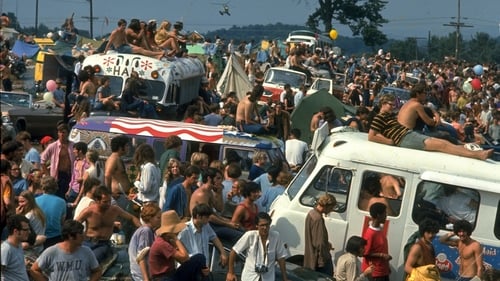
Self - The Who
An intimate look at the Woodstock Music & Art Festival held in Bethel, NY in 1969, from preparation through cleanup, with historic access to insiders, blistering concert footage, and portraits of the concertgoers; negative and positive aspects are shown, from drug use by performers to naked fans sliding in the mud, from the collapse of the fences by the unexpected hordes to the surreal arrival of National Guard helicopters with food and medical assistance for the impromptu city of 500,000.
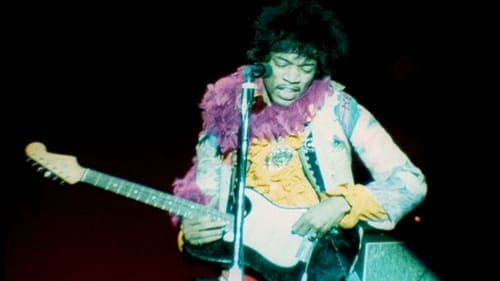
Himself - The Who
Featuring performances by popular artists of the 1960s, this concert film highlights the music of the 1967 California festival. Although not all musicians who performed at the Monterey Pop Festival are on film, some of the notable acts include the Mamas and the Papas, Simon & Garfunkel, Jefferson Airplane, the Who, Otis Redding, and the Jimi Hendrix Experience. Hendrix's post-performance antics -- lighting a guitar on fire, breaking it and tossing a part into the audience -- are captured.

Self
Various international presentions are featured through satellite uplink.
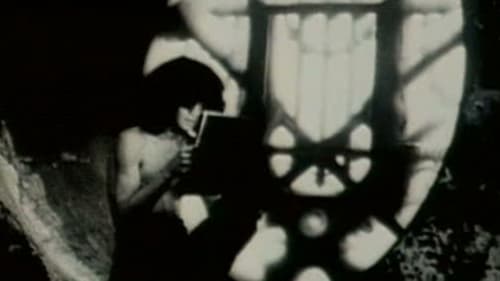
Himself
Series of three short 'Pop Films' directed between 1966 - 67 for French television by Philippe Garrel. Includes footage of The Living Theater in rehearsal, interviews with Julian Beck and Judith Malina, Donovan in concert and The Who in the studio recording 'Pictures of Lily'. Re-broadcast on INA in 1984.

himself

Himself
The Who - Live at the Silverdome




























